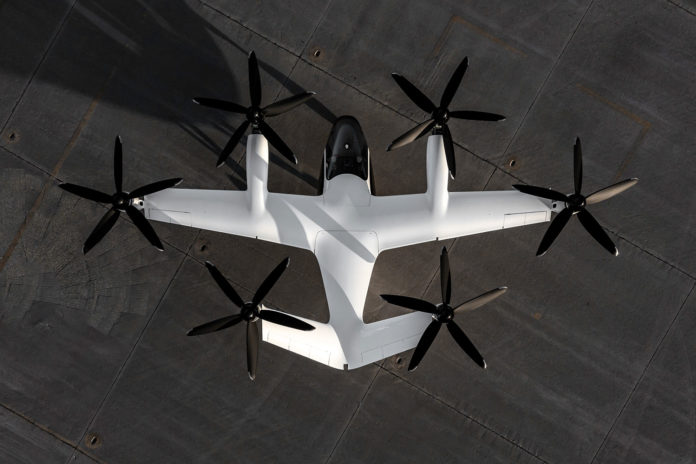Joby Aviation, a California-based company, developing all-electric aircraft for commercial passenger service, unveiled its second prototype electric vertical takeoff and landing (eVTOL) air taxi that’s already approved to join the company’s flight test program. The aircraft is expected to begin flying later this month.
The first pre-production prototype generated 65 terabytes of test data in 2021, flying more than 5,300 miles, including what is believed to be the longest flight of an eVTOL aircraft to date, at 154.6 miles on a single charge.
The new pre-production aircraft received FAA Special Airworthiness Certification and U.S. Air Force Airworthiness Approval from the U.S. Air Force in December, the company says. The FAA special airworthiness certificate officially authorizes Joby to begin flight testing the new aircraft.
The second aircraft, which features six five-blade tilt-rotors like its predecessor, will significantly accelerate Joby’s capacity for flight testing in 2022, further supporting the company’s ambition to certify its aircraft with the Federal Aviation Administration (FAA) in time to launch commercial operations in 2024.
The zero-emissions eVTOL is expected to boast a top speed of 200 mph (322 km/h) and a maximum range of 150 miles (241 km/h). The aircraft is designed to carry four passengers and a pilot with zero operating emissions.
Joby began flying full-scale prototypes in 2017 and has completed more than 1,000 flight tests to date. It aims to launch a passenger service in 2024, offering a fast, clean, and quiet way for people to move within congested metropolitan areas and other communities.
“Our 2021 flight test program delivered a wealth of information and experience to support our program,” said JoeBen Bevirt, founder and CEO of Joby. “With two aircraft flying at the same time, we’ll be able to increase the speed of our learnings as planned while continuing to fulfill the requirements of our Agility Prime contract. We’re grateful to the U.S. Air Force for our ongoing relationship and support and to the FAA for continuing to foster innovation in the aviation industry.”
